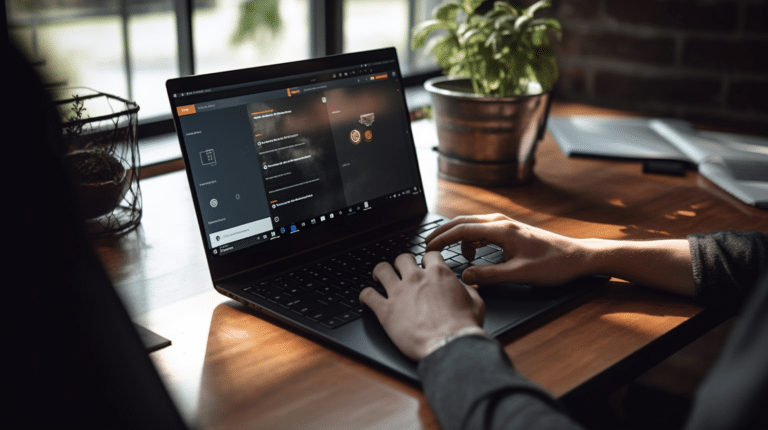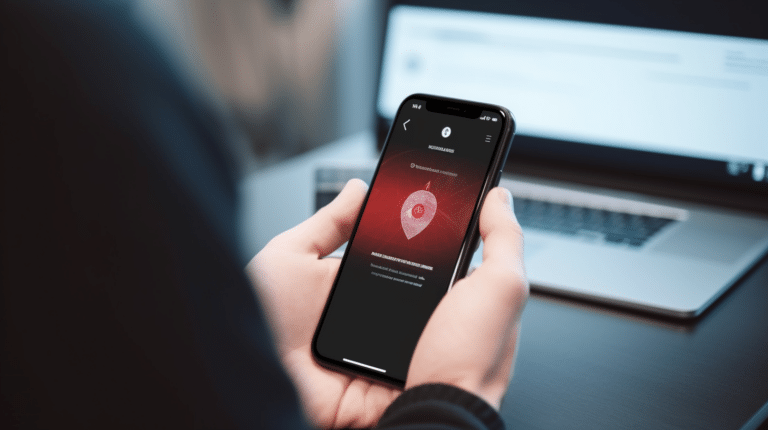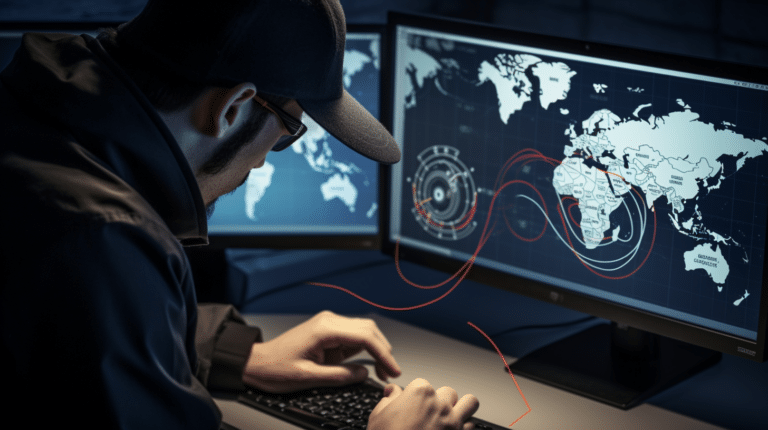The question of whether a VPN can work without Wi-Fi may be puzzling for some people. In essence, a VPN or virtual private network is a secure online tunnel that protects your data and privacy as you browse the internet. It encrypts your traffic, hides your IP address, and allows you to access content that may be restricted in your region. While Wi-Fi can be a convenient way to access the internet, it is not a requirement for using a VPN.
In fact, a VPN can function with any type of internet connection, such as a direct Ethernet connection or a mobile data plan. All that is truly needed is an established connection to the internet. As long as your device can send and receive data packets, the VPN can work its magic, encrypting the information and safeguarding your online activity. This means that you are not limited to using a VPN only when connected to Wi-Fi; you can enjoy the benefits of a VPN no matter how your device is connected to the internet.
Key Takeaways
- VPNs work with any type of internet connection, not just Wi-Fi
- Encryption and privacy are core features of a VPN, helping protect users’ online activities
- Choosing the right VPN and understanding its impact on speed and performance are important considerations for a satisfying experience
Understanding VPNs
A Virtual Private Network (VPN) is a technology that provides privacy and security when using the internet. It does so by creating a secure connection between your device and a VPN server, typically located in a different country or region. This connection is encrypted, ensuring that your online activities are hidden from prying eyes.
One of the main benefits of using a VPN is enhanced privacy protection. When connected to a VPN, your real IP address is replaced with the VPN server’s IP address. This makes it difficult for third parties, such as your internet service provider (ISP), hackers, or government agencies, to track your online activities.
Moreover, VPNs can help bypass geo-restrictions imposed by certain websites or services by allowing you to connect to servers in different regions. This gives you access to content that would otherwise be unavailable in your location.
Even though VPNs are commonly associated with Wi-Fi, they can also work without it. Instead, a VPN can operate as long as it has an active internet connection, such as a direct Ethernet connection or a mobile data plan. This flexibility enables users to maintain their privacy and security even when Wi-Fi is not available.
So, a VPN can function effectively irrespective of the connectivity method, provided there is a stable internet connection to the device. In summary, VPN technology is an essential tool for maintaining privacy and security in the digital age, enabling users to protect their online activities and access content across borders.
The Basics of Internet Connectivity
The internet is a vast network of interconnected devices, allowing us to access information and communicate with each other worldwide. Regardless of the device you are using, be it a smartphone, laptop, or desktop computer, having an internet connection is essential for accessing this digital world.
There are several ways to connect to the internet, with Wi-Fi being one of the most popular options. Wi-Fi uses wireless technology to establish a connection between your device and a router, provided by your Internet Service Provider (ISP). This connection allows data to be transmitted to and from your device via radio signals. However, Wi-Fi is not the only method for accessing the internet.
An alternative option is to connect to the internet through an Ethernet cable. Ethernet is a wired connection that connects your device directly to the router or a modem, providing a reliable and steady connection. This type of connection is more secure and often faster than wireless options.
Another option to consider, particularly for mobile devices like smartphones and tablets, is using a data plan provided by your cellular carrier. With a data plan, you can access the internet using cellular networks, which gives you the flexibility to connect even when Wi-Fi is not available.
In all cases, an Internet Service Provider (ISP) plays a crucial role in enabling your internet connection. ISPs are responsible for providing the infrastructure and services required to transmit data to and from your device. They ensure that you have a stable connection to the global network of the internet, regardless of the method you choose to connect.
In summary, internet connectivity can be achieved through various methods such as Wi-Fi, Ethernet, or cellular data. Each option has its benefits and drawbacks, so it’s essential to choose the method that best suits your needs and circumstances for seamless and secure access to the internet.
VPN and Wi-Fi: How They Interact
A VPN (Virtual Private Network) can function with or without Wi-Fi, as its main purpose is to encrypt and secure your internet connection. Wi-Fi is just one of the ways to access the internet, and a VPN can also work over other types of network connections, such as wired Ethernet or cellular data.
When you connect to a Wi-Fi network, your device communicates with the internet service provider (ISP) to exchange data. This data transmission is often unencrypted or only minimally encrypted, which can make it relatively easy for hackers or other malicious entities to intercept and access your sensitive information, especially over public Wi-Fi networks. A VPN secures these connections by encrypting your data before it leaves your device.
The encrypted data is sent through a secure tunnel to the VPN server, which then connects to the internet on your behalf. This process hides your IP address and makes it difficult for ISPs, hackers, and other third parties to track your online activities or intercept your data.
For instance, when you visit a website using HTTP connections (unencrypted), your data is easily accessible to anyone on the same network. A VPN helps by encrypting your data and sending it securely over the internet, ensuring that your online interactions remain private and secure.
In summary, a VPN can work without Wi-Fi, but it is an essential security tool when using any internet connection, including Wi-Fi. It offers protection by encrypting your data and hiding your IP address, ensuring that your online activities remain confidential and safe from prying eyes.
Understanding VPN Without Wi-Fi
A Virtual Private Network (VPN) is a software tool that provides an encrypted tunnel for your internet activity, keeping it secure and private. Generally, a VPN is used over Wi-Fi, but it can work with various internet connections, including mobile data and direct Ethernet connections. This section will help you understand how a VPN can function without Wi-Fi and the benefits it can offer.
To begin, let’s clarify the role of internet connections in a VPN’s functioning. A VPN relies on an internet connection to establish a secure connection between your device and a remote server. This means you can use a VPN with any type of internet connection, such as Wi-Fi, cellular data, or even a direct cable connection to your modem or router.
When using a VPN without Wi-Fi, you will need an alternative way to connect to the internet. Mobile data and cellular data are the most common alternatives for devices such as smartphones and tablets. Similarly, a direct Ethernet connection can be used for devices like computer systems and laptops. In any case, once you have established an internet connection, the VPN will work the same way as it does over Wi-Fi.
The benefits of using a VPN without Wi-Fi include increased security and privacy, especially when relying on mobile or cellular data connections. Public Wi-Fi networks can be a target for hackers and snoopers, but even mobile data or any other connection may not offer complete security. A VPN ensures your data is encrypted and your communication remains confidential, regardless of the internet connection you are using.
In conclusion, a VPN can work effectively without Wi-Fi, as long as there is an alternative internet connection like mobile data or a direct Ethernet connection. This provides you with a secure, private, and encrypted connection while using any internet source, protecting your information from potential threats. So, if you are away from Wi-Fi or simply prefer another connection, you can rest assured that your VPN will continue to offer the confidence and security you need.
Understanding Encryption
Encryption is a crucial aspect when it comes to ensuring security and privacy while using a VPN. It involves converting data into a coded format, which can only be deciphered by someone possessing the decryption key. This process allows your information to remain confidential and secure during transmission over public networks.
An encrypted tunnel is created when using a VPN. This tunnel ensures that all your data is protected and secure while traveling between your device and the VPN server. This encrypted connection prevents eavesdropping, unauthorized access, and hacking attempts by making it difficult for others to interpret the communicated content.
A common encryption standard used for secure data transmission is HTTPS (Hypertext Transfer Protocol Secure). This protocol combines the HTTP (Hypertext Transfer Protocol) with SSL/TLS (Secure Sockets Layer/Transport Layer Security) encryption, which is implemented to ensure secure communication between your browser and a website. When browsing a site with HTTPS, you can be confident that your data, such as credit card numbers and login credentials, are encrypted and protected.
SSL encryption plays a significant role in maintaining the security of VPN connections. This technology ensures the integrity and confidentiality of your data by transforming it into a code that can only be deciphered using a specific key. Moreover, SSL certificates provide authentication, confirming that you are communicating with a genuine server and not a malicious one.
By combining encryption technologies like SSL with VPN protocols, a highly secure environment is created to safeguard your sensitive information. Ensuring that your VPN utilizes the most robust encryption standards is essential, as this could mean the difference between a secure internet experience and a vulnerable one.
Privacy and Security
A VPN provides an added layer of privacy and security by encrypting your internet connection, which helps protect your personal data and online activities. While using a VPN without Wi-Fi is possible, it requires an alternative internet connection such as a direct Ethernet connection or a data plan for your device.
When it comes to online security, a VPN ensures your connection is secure and minimizes the risk of data breaches or hacking attempts. This is especially important when handling sensitive information like passwords, which are vulnerable to attacks if not properly secured. To enhance security further, consider using multi-factor authentication and a password manager, as these tools can help keep your accounts safe even if your password is compromised.
In addition to security, a VPN offers anonymity by masking your IP address and location. This can be useful for maintaining your privacy and preventing potential data tracking from online marketers and advertisers. By encrypting your data and hiding your digital footprint, VPNs significantly reduce the risk of exposing your personal information to unwanted parties.
Ultimately, the combination of a VPN, password manager, and multi-factor authentication works together to protect your privacy and security while browsing the internet. This ensures that your personal data remains safe and secure, whether you’re connected to Wi-Fi or using an alternative means of internet connection.
Online Tracking and VPN
A virtual private network (VPN) is a popular tool for enhancing privacy and security online. It encrypts your internet connection and routes it through a server operated by the VPN provider, making it difficult for third parties, such as advertisers and hackers, to track your browsing activities. This process effectively hides your IP address and can prevent tracking based on your geolocation. However, a VPN offers varying levels of protection against different forms of tracking.
Advertisers often use tracking technologies, such as cookies, to monitor your browsing habits across multiple websites. While a VPN can help mask your location, it doesn’t inherently block or remove cookies. To prevent advertisers from tracking you through cookies, it’s essential to use additional tools like a tracker blocker browser extension or configure your browser settings accordingly.
Browser fingerprinting is another online tracking technique that aims to identify users through unique characteristics of their browser and device, such as the screen resolution, browser version, and installed plugins. Surprisingly, a VPN offers limited defense against browser fingerprinting because the method relies on device and browser-specific information rather than your IP address. To enhance your protection against browser fingerprinting, you can use privacy-focused browsers or extensions that limit the information websites can gather.
Using a VPN in combination with other privacy tools, like a tracker blocker, can provide a comprehensive solution for protecting your online activities. A reliable VPN service ensures your web traffic and IP address remain hidden. At the same time, a tracker blocker prevents advertisers and other third parties from gathering information about your browsing habits through cookies and other tracking techniques.
In conclusion, a VPN is a valuable component of a robust online privacy strategy but is not a standalone solution. To safeguard against various forms of tracking, it’s important to combine a VPN with additional tools, such as tracker blockers and privacy-focused browsers. This approach will help ensure your online activities remain private and secure in the face of evolving tracking technologies.
Impact on Speed and Performance
VPN services provide an added layer of security and privacy for internet users. However, it’s important to understand the potential impact on speed and performance when using a VPN without Wi-Fi. This occurs primarily through a substitute internet connection such as a direct Ethernet connection or a cellular data plan for your device.
Using a VPN inevitably results in some level of latency, which can lead to slower internet speeds. This is due to the process of encrypting and decrypting data packets as they are transferred through the VPN tunnel. Despite this, the benefits of using a VPN may outweigh the potential decrease in speed, especially when it comes to privacy and security concerns.
Some factors can have a greater impact on the overall performance and speed of a VPN connection. For example, the choice of encryption algorithm and strength can affect the speed at which data is encrypted and decrypted. Stronger encryption algorithms usually come with a performance trade-off, as they require more computational power and time to process.
Another factor affecting speed is the physical distance between the user’s device and the VPN server. The farther the server, the higher the possibility of latency and slower connection speeds. To minimize latency and improve performance, it is recommended to connect to VPN servers that are geographically closer to your location.
It is worth noting that the impact of a VPN on connection speeds can vary depending on the user’s original internet connection and the specific VPN service being used. To measure any potential speed loss, users can perform a speed test before and after connecting to a VPN. If the VPN-connected speed is less than around 60% of the original speed, the VPN may be contributing to the slower connection.
In conclusion, using a VPN without Wi-Fi can have an impact on speed and performance. However, considering the security and privacy benefits provided by VPNs, this trade-off might be acceptable for many users. It is essential to be aware of factors such as encryption strength, server location, and the specific VPN service being used in order to maximize performance and maintain a satisfactory internet speed.
Choosing the Right VPN
When looking for a VPN that can function without Wi-Fi, it’s essential to consider several factors. First, ensure the VPN service you choose supports a range of devices and platforms, such as desktops, smartphones, and tablets. A trusted provider like ExpressVPN is known for its compatibility with various platforms, but it does offer a limit of up to five connections at once.
In addition to compatibility, the VPN protocol used plays a significant role in determining its effectiveness without Wi-Fi. OpenVPN is a popular choice, as it has been the go-to protocol for about two decades. Its open-source nature and strong security features make it a reliable option. ExpressVPN also offers its own protocol called Lightway, designed to provide faster connections while maintaining security. When deciding on a VPN, it’s important to consider the protocols they offer and choose one that best suits your needs.
Another aspect to keep in mind is the VPN’s ease of use. A user-friendly interface makes it simpler for you to navigate and configure the service to your preferences, even if you’re not tech-savvy. Advanced settings should also be available for users who want more control over their VPN.
Finally, consider the price and quality ratio. While some providers offer free services, they may lack certain features, making them less effective and reliable. A paid VPN like ExpressVPN can provide more comprehensive services and better customer support, justifying the cost. Always weigh the benefits against the price to make an informed decision.
VPNs and Streaming Services
Virtual Private Networks (VPNs) have become a popular tool for accessing geo-restricted content on streaming platforms like Netflix. By encrypting your internet connection and hiding your IP address, a VPN allows you to browse the web with increased privacy and security. In this section, we will discuss how VPNs interact with streaming services, and whether it is possible for them to work without Wi-Fi.
A VPN can indeed function without Wi-Fi as long as there is an alternative internet connection available, such as a direct Ethernet connection or a mobile data plan for your device (source). The key is having an active internet connection to facilitate the encrypted data transfer that VPNs provide, regardless of whether it’s through Wi-Fi, Ethernet, or other means.
As for their compatibility with streaming services, VPNs can improve your streaming experience by bypassing geo-restrictions and unlocking a larger library of content (source). However, many streaming platforms such as Netflix are becoming increasingly adept at detecting and blocking VPN usage, making it more challenging to access geo-restricted content (source).
Streaming services are able to identify VPNs by checking incoming requests and matching IP addresses to those known to belong to VPN services (source). This means that not all VPNs may successfully unlock content on streaming platforms. Nevertheless, using a high-quality VPN with updated servers and IP addresses is more likely to grant you access to blocked content.
In conclusion, VPNs can be a useful tool for enhancing the streaming experience by providing access to geo-restricted content. Although they can function without Wi-Fi, keep in mind that a stable internet connection is required to utilize the encryption and privacy features that VPNs offer. Lastly, though it is becoming more difficult for VPNs to bypass streaming services’ detection measures, using a reputable VPN can improve your chances of successfully accessing restricted content.
Overcoming Geo-Restrictions
Geo-restrictions refer to the practice of restricting access to online content based on a user’s geographical location. This can result in blocked websites and limited access to specific content, which is particularly frustrating when you need certain information or want to watch a video unavailable in your region. Government censorship can also contribute to this issue, as some countries block access to particular sites to control the flow of information.
One effective method to bypass these geographical limitations is by using a Virtual Private Network (VPN). A VPN allows users to create a secure connection to a server located in a different country, effectively masking their true location and granting them access to restricted content. By connecting to a global network of servers, individuals can spoof their location to bypass geo-restrictions and unblock online content.
VPNs work not only on Wi-Fi connections but also on other forms of internet connection, such as a direct Ethernet connection or a mobile data plan. As long as there is an active internet connection available, VPNs can function without Wi-Fi, allowing users to stay connected and access blocked content from any device and location.
In addition to VPNs, SmartDNS is another useful tool for bypassing geo-restrictions. This technology works by diverting a user’s DNS queries through a remote server, effectively unblocking access to location-specific content without providing the added security features of a VPN. SmartDNS is an excellent option for those looking to solely bypass geo-blocking without needing the additional privacy and security measures offered by a VPN.
So, whether you are facing government censorship or simple geo-restrictions imposed by content providers, a VPN or SmartDNS can be indispensable tools for overcoming these barriers, granting you free access to the information and entertainment you need regardless of where you are in the world.
Cost and Efficiency Comparisons
When exploring VPNs’ ability to work without Wi-Fi, it’s important to consider the cost and efficiency of the alternatives available. Depending on varying factors like your location, data plan, and preferred devices for internet access, different solutions may be more suitable than others.
For VPN users who have no access to Wi-Fi, one option is to use a mobile data plan. Mobile data generally costs more than Wi-Fi, especially for heavy internet users. In this case, you should carefully evaluate your typical online activities to avoid exceeding data limits and incurring additional charges. Choosing an appropriate mobile data plan that meets your needs is important for cost-effective and efficient internet usage.
Using a VPN with mobile data:
- Can increase your data usage due to encryption overhead.
- May slightly reduce internet speeds because of added security measures.
- Is generally more expensive compared to using Wi-Fi due to mobile data costs.
On the other hand, if you can find Wi-Fi access points, you may be better off using them in conjunction with a VPN. Many VPN services offer tiered plans with a range of features and costs, so you can select the best combination for your needs. The Best Cheap VPNs for 2023 provides a comprehensive comparison of the market’s affordable VPN options.
Using a VPN with Wi-Fi:
- Ensures a more stable, potentially faster internet connection.
- Can reduce overall costs since Wi-Fi offers more data for less money.
- Allows for greater flexibility for choosing the right VPN service for your needs.
In conclusion, the cost and efficiency comparisons for using a VPN without Wi-Fi depend on multiple factors. It’s crucial to consider your specific online activities and requirements in order to make an informed decision. By weighing the costs, performance impacts, and security benefits of using a VPN with either mobile data or Wi-Fi, users can determine the most optimal solution for their unique circumstances.
Establishing a Secure Connection
A VPN, or Virtual Private Network, is a technology that allows users to establish secure connections to the internet, even in situations where Wi-Fi might not be available. To do so, the VPN requires an alternative internet connection, such as a direct Ethernet connection or a data plan for your device 1.
The process begins when your device connects to a VPN server. This server is responsible for rerouting your internet traffic and encrypting it, which prevents eavesdropping and protects your privacy from hackers or surveillance agencies. Your encrypted data is then transmitted through the internet, passing through firewalls that may be in place to filter the traffic 2.
While a Wi-Fi connection is the most common way to access the internet, other alternatives, like cellular data or a wired Ethernet connection, can enable a VPN to function effectively. These options help maintain a secure connection and enable users to access the web with the peace of mind that their sensitive information is protected.
It is essential to choose a reliable VPN service, as they can vary in features and performance. Factors such as server availability, data transfer speeds, and compatibility with different devices should be carefully considered when selecting a VPN provider. Additionally, ensure that the chosen VPN has robust security protocols to protect your data from potential threats.
In summary, a VPN can indeed function without Wi-Fi as long as an alternative internet connection is available. By establishing a secure connection to a VPN server, users can protect their privacy and navigate the web with confidence, regardless of the internet connection type.
Online Safety Tips
To maintain your online safety and privacy, it is essential to establish a robust security framework. One crucial aspect of your online security is understanding how VPNs can work even without Wi-Fi. However, it is also essential to consider other practices and tools that will complement your VPN usage and cover any potential gaps in your protection.
A strong security protocol starts with using cybersecurity software such as an antivirus. These programs help detect, prevent, and remove malware, viruses, and other threats that might compromise your data or devices. Regularly updating your antivirus and operating system ensures that you stay protected against the latest threats.
When browsing the internet, the focus should be on safeguarding your online privacy. Using a VPN is a great way to anonymize your browsing data and prevent snoopers from accessing your internet activity. With a VPN, your data is encrypted, making it difficult for anyone to intercept your traffic.
It is also crucial to manage your browsing data effectively. Consider regularly clearing your browser history, cookies, and cache, as this data can be used by websites and trackers to profile you. Adjusting your browser settings to block third-party cookies and enable “Do Not Track” requests can also help protect your privacy.
To further enhance your internet security, ensure that you are vigilant against the common tactics used by snoops. For instance, create strong and unique passwords for each of your online accounts and utilize a password manager to help store them securely. Enable two-factor authentication wherever possible to add an extra layer of safeguarding your accounts.
Additional measures to protect your online privacy include using encrypted messaging services, avoiding public Wi-Fi networks (or using a VPN while connected to them), and being cautious of phishing attacks via email, websites, and social media.
By incorporating these tips, you will be well on your way to securing your online activities, protecting your privacy, and making the most out of your VPN even without Wi-Fi. Remember always to stay informed and up-to-date with developments in online security to maintain a strong defense against potential threats.
Delving into Protocols
When discussing VPNs and their functionality without Wi-Fi, it’s essential to consider the protocols they use. A protocol is a set of rules that dictate how data is transmitted over a network. VPNs rely on specific protocols to ensure secure connections, privacy, and data integrity.
One of the most widely used VPN protocols is the OpenVPN protocol. OpenVPN offers a reliable, secure, and flexible solution for both site-to-site and remote access VPN connections. It is compatible with various platforms, including Windows, macOS, Linux, Android, and iOS. The protocol works well, whether connected via Wi-Fi, Ethernet, or even mobile data plans, making it a popular choice for VPN users.
Another common protocol is Internet Protocol Security (IPsec). IPsec is widely used to secure traffic between networks or host-to-network connections, often in conjunction with Layer 2 Tunneling Protocol (L2TP). Its flexibility allows for compatibility with various network types, including non-Wi-Fi connections.
WireGuard is a newer VPN protocol known for its simplicity, speed, and security. Designed to provide strong encryption and high performance, WireGuard is becoming increasingly popular among VPN providers. Like other VPN protocols, WireGuard operates independently of the internet connection method, making it suitable for use without Wi-Fi.
When using a VPN without Wi-Fi, the encryption and tunneling provided by these protocols remain intact, regardless of whether you are connected via a direct Ethernet connection or a mobile data plan. As long as your device has an active internet connection and is properly configured to use a VPN, the protocols mentioned above will secure your data and maintain your privacy.
In conclusion, understanding the various VPN protocols is crucial for knowing their compatibility and how they work without Wi-Fi. OpenVPN, IPsec, and WireGuard all enable a seamless VPN experience, no matter the type of internet connection in use.
VPN with Other Connections
A VPN can work without Wi-Fi, as long as there is a substitute internet connection available. For instance, using a direct Ethernet connection or a data plan for your device can enable seamless VPN functioning. As long as packets of information are transferred through an internet connection, VPNs effectively encrypt these packets, ensuring your online activities remain secure and private. Take a look at this AddictiveTips article for more information.
VPN connections can also be used with other technologies such as the Tor network. Tor, or The Onion Router, is a system that allows users to browse the internet anonymously. By integrating a VPN with Tor, you can enhance your online security and privacy even further. With this setup, your internet traffic is first encrypted by the VPN and then sent through the Tor network, making it extremely difficult to trace your online activities back to you.
Moreover, some VPN providers offer browser extensions for popular browsers like Chrome, Firefox, and Edge. These extensions enable users to quickly activate their VPN connection within the browser itself. While using a VPN extension may not be as secure as using a dedicated VPN client, it’s still a convenient option for securing your browsing activities.
It’s also worth mentioning that VPNs work well with both mobile and desktop devices. Most VPN providers offer dedicated apps for smartphones and tablets, allowing you to encrypt your internet traffic on the go. This is useful when working with unstable Wi-Fi connections or when using public Wi-Fi hotspots, ensuring that your data remains secure even in potentially unsafe network environments.
In conclusion, VPNs offer a versatile means of ensuring privacy and security for your internet activities. They work effectively without Wi-Fi, integrate well with technologies like Tor, and are compatible with browsers and mobile devices. By choosing a suitable VPN, you can keep your online activities encrypted and protected regardless of your internet connection type.
Conclusion
In summary, a VPN can work without Wi-Fi, but you still need an internet connection to establish a connection with the VPN server. It’s essential to understand the importance of a VPN in today’s digital world. VPNs help protect your online privacy and secure your data while using various networks, not only Wi-Fi (source).
Using a VPN is particularly necessary when accessing public Wi-Fi networks, as it can provide a secure connection and prevent potential data theft. However, with advancements in encryption and internet security, the importance of using a VPN extends beyond public Wi-Fi into other network connections (source).
When choosing a VPN, consider factors such as server locations, device compatibility, and privacy policies, to ensure you get the best possible service for your needs. A well-configured VPN can provide reliable protection, but it’s essential to stay informed about the latest security trends and updates (source).
By utilizing a VPN, you can enhance your online security and maintain anonymity while browsing the internet. Despite the prevalence of encrypted websites, a VPN remains an important safeguard against potential security risks on various networks. Staying cautious and informed about the ever-changing landscape of internet security will help you make informed decisions about the use and importance of a VPN in your daily life (source).
Frequently Asked Questions
Can a VPN function on mobile data?
Yes, a VPN can function on mobile data. As long as your device has an active internet connection, either through Wi-Fi or mobile data, a VPN can be used to encrypt your online traffic and maintain your privacy. Just remember that using a VPN on mobile data might consume more data than usual, due to the added encryption overhead.
Is Wi-Fi necessary to use a VPN?
No, Wi-Fi is not strictly necessary to use a VPN. While many users connect to a VPN through Wi-Fi for convenience, a VPN can also work on other types of internet connections, such as a direct Ethernet connection or mobile data. The key factor is having a stable internet connection to support the encrypted connection created by the VPN. Learn more about using a VPN without Wi-Fi on AddictiveTips.
Why might a VPN not work on cellular data?
There are a few reasons why a VPN might not work on cellular data. Some mobile carriers may have restrictions on VPN usage or might block certain VPN protocols. Additionally, signal strength and network congestion can impact the VPN’s performance. If you’re having trouble using a VPN on your mobile device, you might want to try using a different VPN protocol or contacting your mobile carrier to inquire about potential restrictions.
Do VPNs consume a lot of daily data?
VPNs do consume some additional data due to the encryption process, but this extra usage is generally minimal. However, if you’re on a limited mobile data plan, it’s essential to monitor your data usage. Certain VPN protocols may consume more data, so you might want to consider using a protocol with lower overhead, such as WireGuard, to save on data usage.
Can a VPN increase internet speed?
A VPN is not designed explicitly to increase internet speed, and in some cases, it can decrease your speed due to encryption and routing through remote servers. However, a VPN can sometimes lead to a faster connection if it bypasses throttling from your ISP or if the chosen server has a better route to your destination. Keep in mind that these are not guaranteed benefits, and your experience may vary.
How to use a VPN without an internet connection?
In reality, a VPN cannot be used without an internet connection, as a VPN’s primary function is to encrypt and secure your online traffic. If you don’t have an internet connection, there is no data to encrypt or transmit. Nevertheless, VPNs can be used in offline environments, such as local networks within large office buildings, where employees may access local computer systems securely over the internal network, as mentioned on Quora. However, this is not the common usage scenario for most VPN users.






